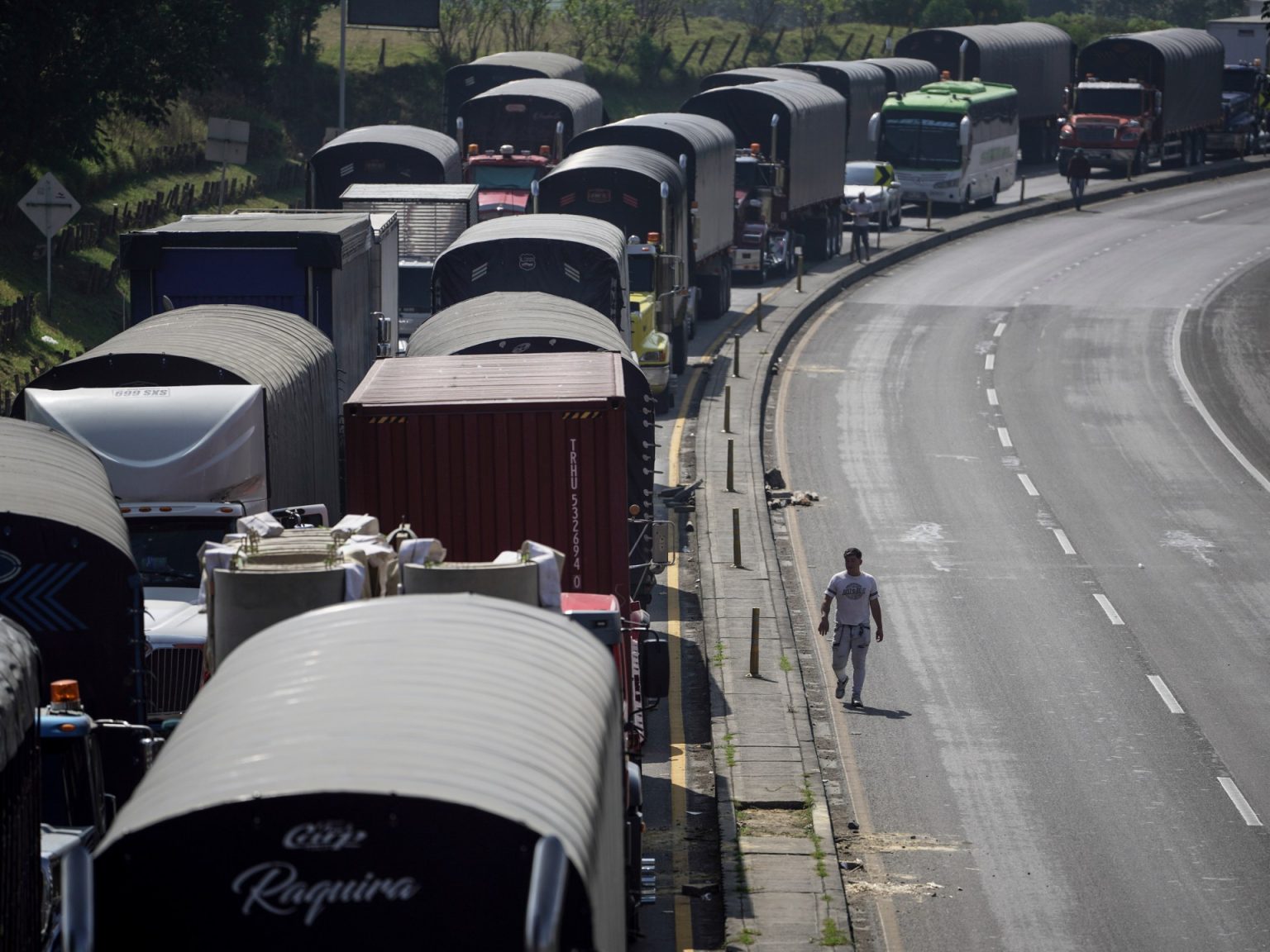Truckers in Colombia recently reached an agreement with the government to lift a five-day blockade in protest against the ending of COVID-era fuel subsidies. President Gustavo Petro announced the deal, which aims to address concerns about the removal of diesel fuel subsidies that were introduced during the pandemic. The truckers unions believed that eliminating the subsidies would have a detrimental impact on their businesses, leading them to block major roads in protest, which raised fears of food and supply shortages in metropolitan areas.
President Petro, who is Colombia’s first leftist president, defended the decision to phase out the fuel subsidies as necessary to combat a growing budget deficit and increase funding for education and healthcare. An agreement was reached in the early hours of Friday, which will involve a gradual increase in fuel costs by the end of the year, but at a slightly lower rate than initially planned. President Petro expressed satisfaction with resolving the truckers’ strike quickly and in a favorable manner through social media.
The truckers’ protest started after the government imposed a 50-cent increase per gallon of diesel fuel, leading to intensified demonstrations that included blockades on roads across the country. Police reported 120 permanent blockades, causing major disruptions in traffic and forcing many people to find alternative ways to commute. Concerns about food shortages emerged as a result of the blockades, prompting the government to address the situation. Diesel fuel subsidies were costing the Colombian government around $240 million monthly, paid out to the state oil company Ecopetrol.
The standoff between the truckers and the government occurred as the Ministry of Finance and Public Credit was finalizing a tax reform plan to increase government revenues by $3 billion the following year. The plan included raising wealth taxes, taxes on personal income that is not from wages, and certain sales taxes, such as those on hybrid cars and online betting. President Petro’s focus on expanding social welfare programs has led to a significant increase in the government’s annual budget during his first two years in office. However, the administration has faced challenges in implementing wide-ranging reforms amidst scandals and opposition in Congress.
Critics have interpreted the defeat of many left-wing candidates in local and regional elections last year as a rebuke to President Petro. Despite his efforts to advance various reforms, progress has been slow, further fueling opposition in Congress. Nevertheless, the recent agreement with the truckers to lift their blockade was seen as a victory, as they celebrated by unblocking roads across the country. The resolution of the protest is expected to ease fears of supply shortages and restore normalcy in transportation networks. President Petro’s government continues to seek ways to increase revenue and implement reforms while facing ongoing challenges.













